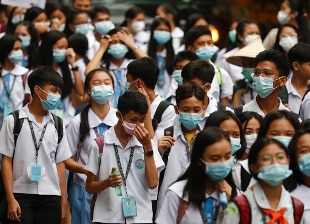Share
September 16, 2021 Eighteen months after the start of the covid-19 pandemic, schools in about 17 countries remain
completely closed
, while those in 39 countries remain
partially closed
, according to a report published by UNICEF. Among the "almost completely closed" schools, those attended by almost 77 million students in the Philippines, Bangladesh, Venezuela, Saudi Arabia, Panama and Kuwait.
The worst situation is recorded in the Philippines, a country that is fighting one of the worst coronavirus outbreaks in Asia as the new school year began this week.
To call attention to a year and a half of lost learning, the potential delayed and the uncertain future, and to urge governments to reopen schools as soon as possible, Unicef and partners
will close their digital channels for 18 hours
, protest to which the Italian representation of the UN agency for children also adheres.
According to the UNICEF study,
Bangladesh, the Philippines and Panama
they are among the countries that have kept schools closed the longest. In total, it is estimated that 131 million students in 11 countries have lost more than three-quarters of face-to-face classes and about 27% of countries around the world continue to have schools fully or partially closed. "While distance learning has been a lifeline for millions of schoolchildren,
access to technology and the quality of education
have been unequal even within communities and school districts" in poor countries, he points out. the agency ..
UNICEF director general,
Henrietta Fore
, argues that "the losses students are suffering by not going to school may never be recovered".
Not attending school in the presence causes further damage: "in addition to being left behind with education, many children miss
school meals
and
routine vaccinations
, experience social isolation and anxiety, and also risk being
exposed to abuse and violence
. For some, school closures have led to dropout,
child labor
and
early marriage
. Many parents have been unable to continue working while balancing care and support needs. their children's learning: some have lost their jobs altogether, pushing their families into poverty and creating a deeper economic crisis. "

